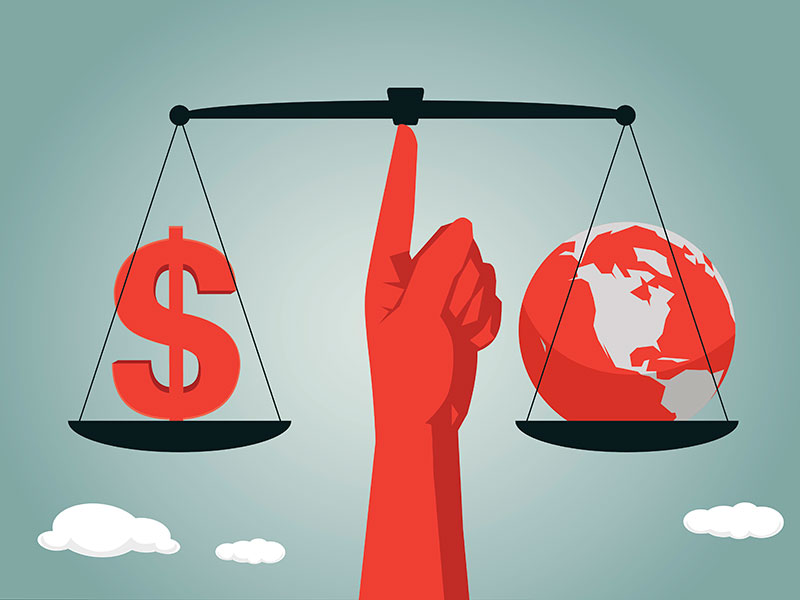The concept of wealth in the Baha’i Faith transcends mere monetary accumulation; it proffers a profound charge of stewardship and social responsibility. Echoing the adage, “with great wealth comes great responsibility,” the Baha’i teachings provide a robust framework for understanding economic justice. This framework not only delineates the ethical dimensions of wealth but also positions individuals and communities as active participants in the pursuit of social equity. Thus, while the possession of wealth may confer certain privileges, it obligates the holder to engage in the betterment of humanity.
At the heart of Baha’i economic thought lies the notion of the oneness of humanity. This principle underscores the interconnectedness of all individuals, suggesting that the welfare of one is inextricably linked to that of others. As individuals accrue wealth, they must nurture an awareness that their fortunes should contribute to collective progress rather than perpetuate disparities. Baha’is are called to extend their resources towards alleviating the plight of the impoverished, thereby fostering an equitable society that honors the dignity and rights of every person.
In the Baha’i worldview, wealth serves as a means rather than an end. It is likened to a tool—one that can build systems of support or erect barriers of exclusion. When wielded thoughtfully, economic resources can catalyze transformations within communities, enabling the fulfillment of human potential. Conversely, wealth that is hoarded or misallocated contributes to societal strife, engendering disenfranchisement and discord. Thus, the ethical use of wealth is paramount, requiring a conscientious disposition towards economic justice.
One of the distinctive features of the Baha’i approach is its holistic perspective on economic issues. This comprehensive view integrates not only material considerations but also spiritual and ethical dimensions. Baha’is are reminded that the pursuit of wealth must be harmonized with the principles of justice and morality. In this light, economic activities should be conducted in a manner that promotes social good and is aligned with Baha’i teachings, fostering an environment where prosperity is shared equitably.
Another notable aspect of Baha’i teachings on economic justice is the emphasis on moderation and balance. The Baha’i writings advocate for a lifestyle that eschews excessive consumption and ostentation, encouraging individuals to live within their means while contributing to the welfare of others. This philosophy does not imply a rejection of wealth but rather its judicious management, where ambition is tempered by altruism. Such a balanced approach ensures that the benefits of wealth are experienced not only by the affluent few but are distributed across the societal spectrum.
Furthermore, economic justice within the Baha’i framework encompasses the role of institutions and governance. The Baha’i teachings advocate for systems that promote equitable resource distribution and discourage exploitative practices. Economic frameworks should be established that provide opportunities for all individuals to thrive, ensuring that basic needs are met as a fundamental right. This calls for policies and practices that uphold human dignity, foreseeing the necessity of integrating just economic principles into governance.
In addition, the Baha’i Faith extols the virtue of work as a means of worship and service. Engaging in productive labor is not merely a means to financial gain; it serves as an avenue for personal development and societal contribution. Baha’is are encouraged to approach their vocations with a spirit of service, seeing their efforts as part of a larger mission to uplift humanity through both innovation and compassion. This view cultivates a culture of responsibility where work becomes a reflection of ethical values rather than solely a conduit for wealth accumulation.
Moreover, the Baha’i commitment to economic justice is intimately tied to the education and empowerment of individuals. Access to education is perceived as a vital component in eradicating poverty and fostering economic equity. The Baha’i teachings advocate for universal access to quality education, empowering individuals with the knowledge and skills necessary to participate in their communities meaningfully. In this context, educational institutions are seen not merely as providers of knowledge but as vehicles for social transformation, enlightening individuals to embrace their economic responsibilities.
Finally, the Baha’i principles of unity and cooperation play a pivotal role in nurturing economic justice. The realization of a just economic system necessitates collaboration among individuals, communities, and nations. Baha’is are called to embody the spirit of unity, working together to address the socioeconomic challenges that persist globally. Through collective efforts—rooted in mutual respect and understanding—societal barriers can be dismantled, and a culture of inclusivity can flourish, where wealth enhances rather than diminishes human connection.
In conclusion, the Baha’i perspective on wealth and economic justice encapsulates a profound synergy between material prosperity and spiritual responsibility. As individuals embrace the call to use their resources in service of humanity, they partake in a transformative journey that enriches both their lives and the communities they inhabit. The teachings of the Baha’i Faith remind us that true wealth is not solely measured by material possessions but is reflected in the relationships we forge and the legacy of justice we leave behind. Thus, the call for economic justice resonates not only as an ethical imperative but as a sacred trust that binds humanity together in a shared pursuit of the common good.
